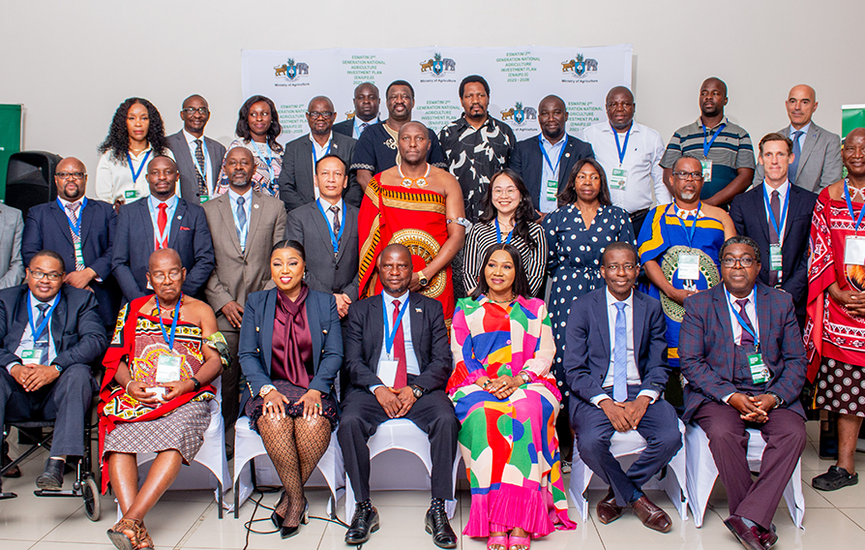Faced with the mounting threats of climate change, market disruptions, and global food price volatility, Eswatini has taken decisive steps to safeguard its agricultural future. The country recently hosted the 2nd Annual Eswatini Agriculture Business and Investment Forum, held from August 13 to 14, 2025, under the theme “Mobilizing Investments in Agri-food Systems and Youth Empowerment for Food Sovereignty.” Organized by the Food and Agriculture Organization of the United Nations (FAO) in collaboration with the Ministry of Agriculture and key development partners, the Forum convened a diverse coalition of government officials, private sector leaders, investors, and international stakeholders to accelerate agri-food systems transformation and build resilience across the nation.
The Forum served as a dynamic platform to showcase investment-ready projects aimed at promoting climate-smart innovation, reducing reliance on imports, and enhancing Eswatini’s capacity to respond to environmental and economic shocks. Prime Minister Russell Dlamini emphasized the urgency of embedding resilience throughout the agricultural value chain—from the provision of quality seeds and fertilizers to the development of high-value commodities, agro-processing infrastructure, and advanced irrigation systems. He called for strategic partnerships to unlock capital, generate youth employment, and strengthen local economies.
FAO’s broader strategic support was evident throughout the event, with initiatives such as the Hand-in-Hand Initiative and the One Country One Priority Product programme driving the creation of agro-industrial parks and agri-tech hubs. UN Resident Coordinator George Wachira highlighted the importance of building systems that not only recover from crises but are designed to withstand them. These hubs are strategically positioned to help communities absorb and adapt to shocks, including droughts, floods, and animal disease outbreaks.
FAO leaders, including Sub regional Coordinator Patrice Talla and Eswatini Representative, urged investors to support the Eswatini Agriculture Development Fund (EADF), a catalytic mechanism designed to de-risk grassroots investments, provide seed capital, and scale climate-resilient value chains. Talla stressed the need for a balanced approach that harmonizes social, economic, and ecological priorities to achieve sustainable transformation.
Panel discussions delved into practical solutions to pressing vulnerabilities, such as improving cold storage and aggregation, reducing post-harvest losses, expanding irrigation, and designing blended finance models to make agricultural lending more accessible. Sydney Dladla, Head of Agribusiness at NAMBOARD, underscored the importance of sustained retail partnerships with smallholder farmers, emphasizing quality assurance, certification, and contract integrity as key to maintaining supply continuity during crises.
Youth entrepreneurship emerged as a powerful force for resilience, with young innovators presenting precision agriculture tools, drought-tolerant crops, and renewable energy-powered processing systems. Participants called for targeted investment in youth-led enterprises, improved access to land and finance, and integration into agro-industrial parks with guaranteed market linkages. Women’s empowerment was also spotlighted as a critical multiplier of resilience, with ongoing efforts to strengthen women-led producer organizations, enhance extension services, and expand access to digital platforms for real-time climate and market data.
FAO reaffirmed its commitment to Eswatini’s agricultural transformation through over USD 4 million in active and pipeline programs supporting climate-resilient horticulture, green cities, emergency animal health interventions, and technical assistance. Looking ahead, the Government, FAO, and partners plan to scale climate-smart agriculture, enhance structured trade and digital marketplaces, and expand risk management tools such as index-based insurance. By coupling emergency preparedness with long-term investment, Eswatini is laying the foundation for agrifood systems that are inclusive, adaptive, and capable of withstanding future shocks—ensuring no one is left behind.
